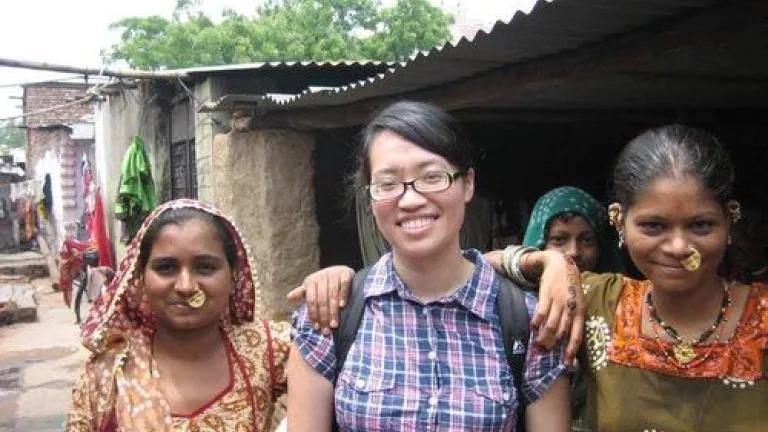
NRDC's new tool, “Climate Change Threatens Health” shows local data and maps detailing extreme weather patterns throughout the United States and describes climate – health preparedness strategies to protect local communities. NRDC is also continuing our work in India to protect local communities from extreme heat. With our partners, the Indian Institute of Public Health and Emory University, we’ve been conducting cutting-edge research on extreme heat in local communities in Ahmedabad, Gujarat.
Extreme heat events are expected to rise in India, as we extensively discussed during our March 2011 heat and health vulnerability workshop in Ahmedabad. Last summer temperatures rising to 122oF resulted in over 100 deaths in Gujarat, 90 deaths in Maharashtra, and 35 deaths in Rajasthan. Global temperature data compiled by NASA characterized 2010 as the hottest year on record. Increasing temperatures across the globe substantiate the imperative need to understand the impacts of heat on health. Ahmedabad’s community leaders and local officials already recognize the need to prepare for the health-related impacts of climate change, and we’re working with local communities to strengthen preventive measures against extreme heat.
IIPH’s Dean Dr. Dileep Mavalankar and Professor Gulrez Azhar and Emory University’s School of Public Health are working with NRDC to conduct an in-depth heat vulnerability assessment survey. This survey, the first of its kind, assesses the risks and effects of heat on health. Emory University Public Health graduate student Kathy Tran is leading the local survey in 12 randomly selected slums of Ahmedabad. The survey asks a series of questions revolving around each family’s health history, adaptation to heat exposure, knowledge of heat stress, and access to resources. Through the collected data, we’ll be examining the heat stress impacts, community resources, and traditional heat coping measures. This data will allow for further education, focus groups, and workshops to target the populations that need solutions. We’re also providing pamphlets translated into Gujarati that portray the best methods for keeping cool.
Since our March workshop, Ahmedabad officials are also stepping up efforts to protect local communities from extreme heat. Previously only equipped with one weather gauge, the city is now planning to install six new weather gauges. The new weather gauges will provide valuable data for warning local communities about heat and framing policy measures to address extreme heat waves.
Our multi-phase project aims to mitigate the extreme effects of heat on this community in Ahmedabad. Crucial to determining the impacts of heat, are the actions and well-being of the groups of people most vulnerable within communities affected. In the coming months, we are looking forward to advancing our project by conducting focus groups, developing early warning measures, and recommending protective measures to save lives and improve livelihoods in India.
Co-Authored by Neha Mathew, NRDC Intern
(Photo by Dr. Gulrez Azhar, IIPH)